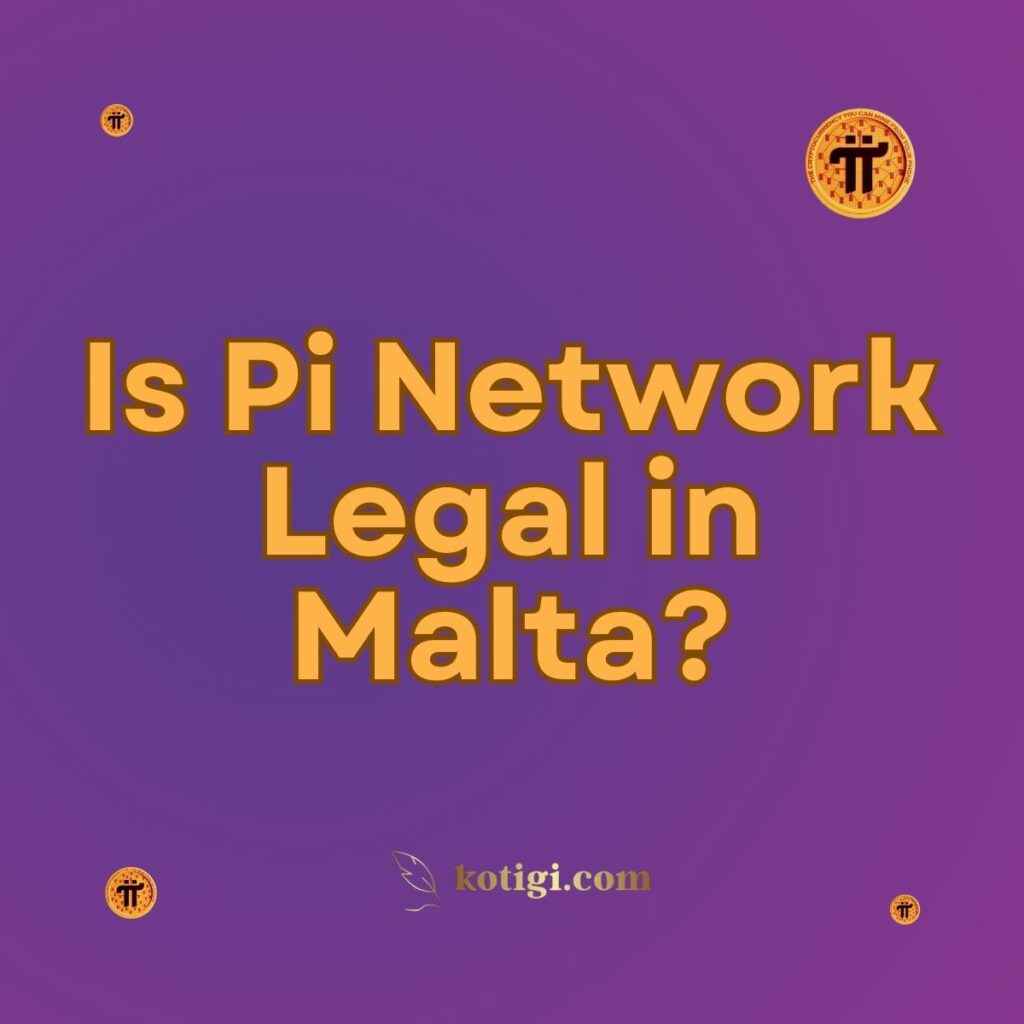
Is Pi Network Legal in Malta?
Pi Network is not specifically regulated in Malta, but it operates in a legal gray area, as the country does not yet have laws that directly address this cryptocurrency. However, Malta has a favorable environment for blockchain technology, which could benefit Pi Network in the future.
Introduction
Malta, often referred to as the “Blockchain Island,” is well known for its forward-thinking approach toward cryptocurrency and blockchain technology. The country has introduced comprehensive regulations that govern the use of blockchain and cryptocurrencies, making it a hotspot for crypto-related businesses. However, despite its progressive stance, Pi Network’s legal status in Malta is not explicitly defined. The absence of specific regulations around this mobile-based cryptocurrency raises questions about its legal standing. In this post, we will explore Malta’s regulatory framework, Pi Network’s current legal position, and what users should be aware of when engaging with Pi in this jurisdiction.
1. Malta’s Cryptocurrency Regulatory Framework
Malta has established itself as a pioneer in cryptocurrency regulation through the introduction of several key legislative measures. This section examines how Malta’s regulatory framework applies to cryptocurrencies like Pi Network.
1.1 The Virtual Financial Assets Act (VFA)
The Virtual Financial Assets Act (VFA), enacted in 2018, is one of the most significant pieces of legislation governing digital assets in Malta. The VFA sets forth a clear distinction between different types of digital tokens—security tokens, utility tokens, and virtual financial assets. However, Pi Network has not yet been classified under any of these categories.
1.2 The Malta Digital Innovation Authority (MDIA)
The Malta Digital Innovation Authority (MDIA) oversees blockchain technology and digital innovation in the country. While Pi Network has not been specifically addressed by the MDIA, the platform could fall under their supervision if it expands its operations in Malta.
1.3 Financial Services and Compliance
Malta requires companies involved in digital assets to adhere to strict compliance standards. Although Pi Network is not officially recognized by the Malta Financial Services Authority (MFSA), its operations would likely need to align with the existing legal framework if the network pursues further developments in the country.
2. Is Pi Network Legal in Malta?
The legal status of Pi Network in Malta remains in a gray area due to the lack of specific legislation directly addressing this cryptocurrency. Malta’s crypto-friendly policies do not explicitly ban Pi Network, but there is also no formal approval of its operations.
2.1 No Explicit Ban on Pi Network
Pi Network is not prohibited in Malta. Since the Maltese government has been favorable toward blockchain technology and cryptocurrencies, there is no reason to believe that Pi Network would face legal hurdles under the current regulatory regime.
2.2 Regulatory Uncertainty
Despite Malta’s favorable blockchain environment, the lack of specific regulatory guidance regarding Pi Network creates uncertainty for users and potential investors. The network may eventually need to adhere to stricter financial regulations as its user base expands.
3. Compliance Considerations for Pi Network Users in Malta
While Pi Network is not currently regulated, users should remain aware of potential compliance requirements that may emerge as the regulatory landscape evolves.
3.1 Data Privacy and KYC (Know Your Customer) Requirements
In line with Malta’s financial laws, companies handling digital assets must implement Know Your Customer (KYC) protocols. Although Pi Network’s mining process does not involve traditional financial transactions, it could be subject to KYC requirements as its ecosystem grows.
3.2 Tax Obligations
As of now, there are no explicit tax rules related to Pi Network in Malta. However, users should be prepared for potential tax obligations, especially if they exchange Pi tokens for other cryptocurrencies or fiat currency.
3.3 Anti-Money Laundering (AML) Regulations
Malta has stringent Anti-Money Laundering (AML) rules, and any cryptocurrency project operating in the country must comply. Although Pi Network has yet to be subjected to these regulations, future developments may require stricter compliance.
4. Future Legal Developments in Malta
The future of Pi Network in Malta may depend on the continued evolution of cryptocurrency laws. As Pi transitions from its development phase to a fully operational blockchain, it will need to navigate Malta’s complex regulatory framework.
4.1 Potential for Regulatory Recognition
As Pi Network matures and its use cases expand, it may seek official recognition under Malta’s cryptocurrency laws. Achieving this status would provide the platform with more credibility and legal clarity, making it easier for users and businesses to engage with Pi tokens.
4.2 Impact of EU Cryptocurrency Regulations
As Malta is a member of the European Union, any EU-wide cryptocurrency regulations could also influence the legal status of Pi Network in the country. The proposed Markets in Crypto-Assets (MiCA) regulation could impose new rules on digital currencies like Pi, shaping their legal standing.
5. Risks and Opportunities for Pi Network Users in Malta
While the legal situation surrounding Pi Network in Malta remains uncertain, the country’s crypto-friendly stance offers both risks and opportunities for users.
5.1 Regulatory Risks
Since Pi Network operates in a gray area, there is a risk that future regulations could impose restrictions on the platform. Users should stay informed about legal developments to mitigate potential compliance issues.
5.2 Opportunities for Growth
Malta’s supportive blockchain ecosystem presents an opportunity for Pi Network to grow. If Pi Network is officially recognized, it could open doors for increased adoption and integration within the Maltese economy.
Conclusion
The legal status of Pi Network in Malta is still undefined, though the country’s progressive approach to blockchain technology offers a favorable environment for its future development. While there are currently no explicit regulations or bans related to Pi Network, users should be aware of Malta’s evolving cryptocurrency laws, especially as Pi’s ecosystem continues to grow. Regulatory compliance, particularly in areas like KYC and AML, may eventually become a requirement for Pi Network users in Malta. As the network progresses, staying informed about potential legal changes will be crucial for users and developers alike.
Key Takeaways
- Pi Network operates in a legal gray area in Malta, with no specific laws addressing its activities.
- Malta’s crypto-friendly policies make the country a promising location for Pi Network’s future growth.
- Pi Network may need to comply with KYC, AML, and tax regulations in the future.
- Future EU-wide regulations like MiCA could influence Pi Network’s legal standing in Malta.
- Users should remain vigilant about evolving legal requirements to ensure compliance.





